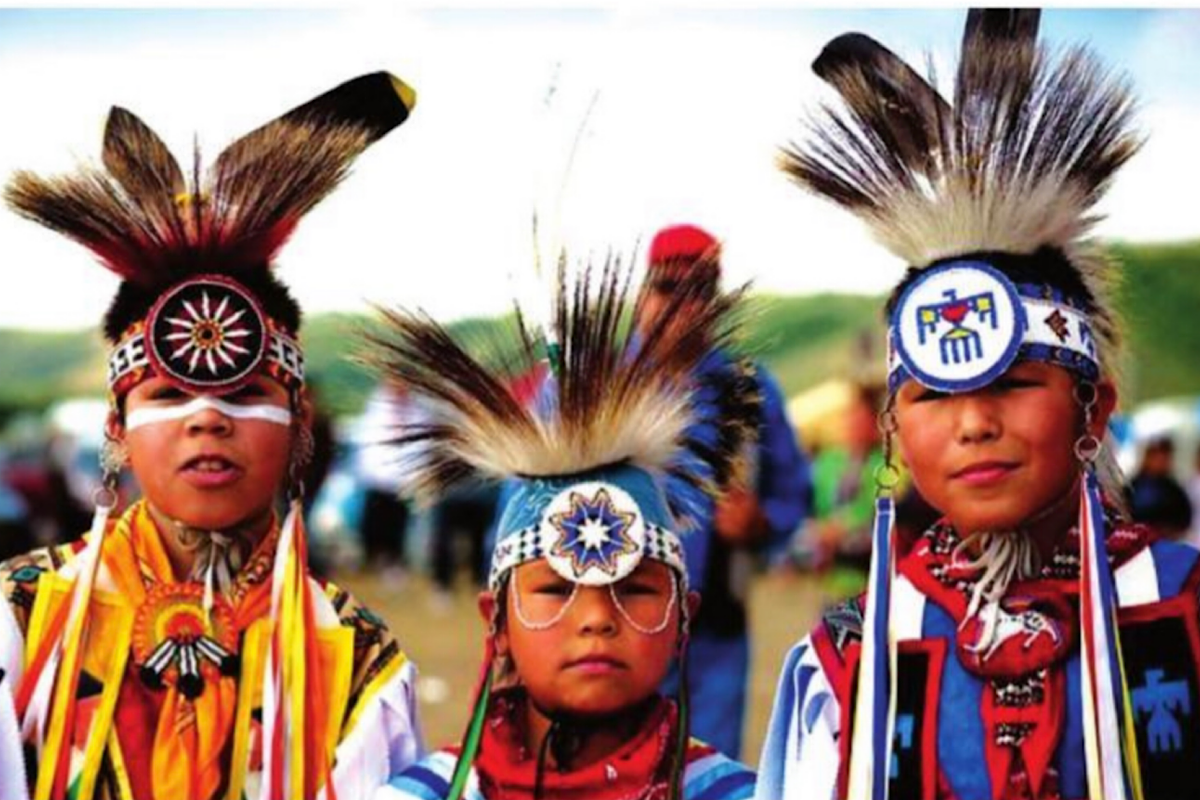Challenge in Bihar
In the tumultuous arena of Bihar politics, where alliances shift like sand dunes in the wind, this election seems poised to redefine the political landscape.

Representation image (Photo:SNS)
Those who know Canada as a prosperous, democratic country and a land of opportunities may find it difficult to reconcile this with the fact that an officially appointed commission has referred to its record of serious human rights violations against its own indigenous people as cultural genocide. Four years later, the word genocide was repeated by another officially appointed commission (2019), this time more specifically in the context of indigenous women. The allegation of cultural genocide has been accepted by the government which has apologized to its indigenous people.
An apology, however, may be easier than actual action. Repeated admission of guilt has not led to the kind of basic changes needed in Canadian society and authorities.
In year 1996 the Royal Commission of Aboriginal People had alerted the people to the urgency of remedying the shocking injustices to the indigenous people of the country. In 2008, the Prime Minister of Canada apologized to the indigenous people of Canada. However the follow-up action was not encouraging at all, as was revealed by the Truth and Reconciliation Commission of Canada (TRCC) which submitted its final report in 2015.
Then in 2019 the National Inquiry into Missing and Murdered Indigenous Women said, “What connects all these deaths is colonial violence, racism and oppression.” In 2021, after all these efforts at awakening, Pal Palmater writing in Maclean’s journal stated, “Reconciliation has not just not gone off the rails; many indigenous people think it is dead. With each broken promise, there is less collective faith that the Trudeau government, like many governments before it, has any intention of making good on its promise… At every turn, Canada chooses the path of injustice towards indigenous people.”
Advertisement
The TRCC Report stated very clearly, “For over a century the central goals of Canada’s Aboriginal Policy were to eliminate aboriginal governments, ignore Aboriginal rights, terminate the treaties and through a process of assimilation, cause Aboriginal people to cease to exist as distinct legal, social, cultural, religious and racial entities in Canada. The establishment and opera- tion of residential schools was a central element of this policy, which can best be described as ‘cultural genocide’.”
In fact it is these so-called residential schools that were at the centre of the inquiries made by this Commission which examined about 6,000 witnesses. On the basis of extensive study and the innumerable statements made before it and the extensive record examined by it, the TRCC stated, “Canada’s Residential School System for Aboriginal Children was an education system in name only. These residential schools were created for the purpose of separating aboriginal children from their families, in order to minimize and weaken family ties and cultural linkages…” Many children here were abused physically and sexually. “They died in the schools in numbers that would not have been tolerated in any school system anywhere in the country, or in the world”, the TRCC Report said.
The Human Rights Watch Report of 2021 stated in a note on the situation in Canada, “From May to July hundreds of unmarked graves were found at government-funded and church-run residential schools in the provinces of British Columbia and Saskatchewan. Approximately 150,000 children were removed from their families and communities and placed in residential schools, where they were forbidden to speak their own lan- guages or practice their culture. Many also suffered physical and sexual abuse at residential schools which operated until the 1990s.” In several cases these children were taken away forcibly from their families.
The TRCC Report was emphatic in emphasizing the cultural genocide aspect of the injustice against indigenous people. This report first defined what constitutes cultural genocide and then went on to say, “In its dealing with aboriginal people Canada did all these things.”
Regarding the motives behind this the TRCC Report said without mincing any words that the Canadian government pursued this policy because “it wished to divest itself of its legal and financial obligations to Aboriginal people and gain control over their land and resources.”
These policies of many-sided injustice have also led to a situation in which the indigenous people are being driven more and more to prisons. While the indigenous people comprise only about 5 per cent of the population, they comprise about 30 per cent of those who are in incarceration. In the case of indigenous women, they comprise about 42 per cent of the incarcerated women. This data is for federal prisons. In the case of provincial prisons this share of indigenous people is often even higher and in some extreme cases can be as high as 70 per cent. Indigenous people have often faced more problems in getting bail.
According to a report of the Department of Justice, “Colonization has led to cultural alienation, territorial dispossession, intergenerational trauma, systemic discrimination and socio-economic marginalization which together continue to have profoundly negative impacts on the lives of many indigenous people.” At the same time when the indigenous people have suffered so much injustice, some government authorities have spent millions of dollars in legal cases that may impede the flow of benefits or compensation to indigenous peo- ple who have suffered so much.
Clearly this situation must change in significant and sustained ways. The Canadian authorities and society have to give much more attention to ensuring justice in the true sense to the indigenous people. This is not just a matter of initiating a programme or two, but of more basic changes. As the TRCC Report said virtually all aspects of Canadian soci- ety need to be reconsidered.
(The writer is Honorary Convener, Campaign to Save Earth Now. His recent books include Planet in Peril, Man over Machine and A Day in 2071.)
Advertisement